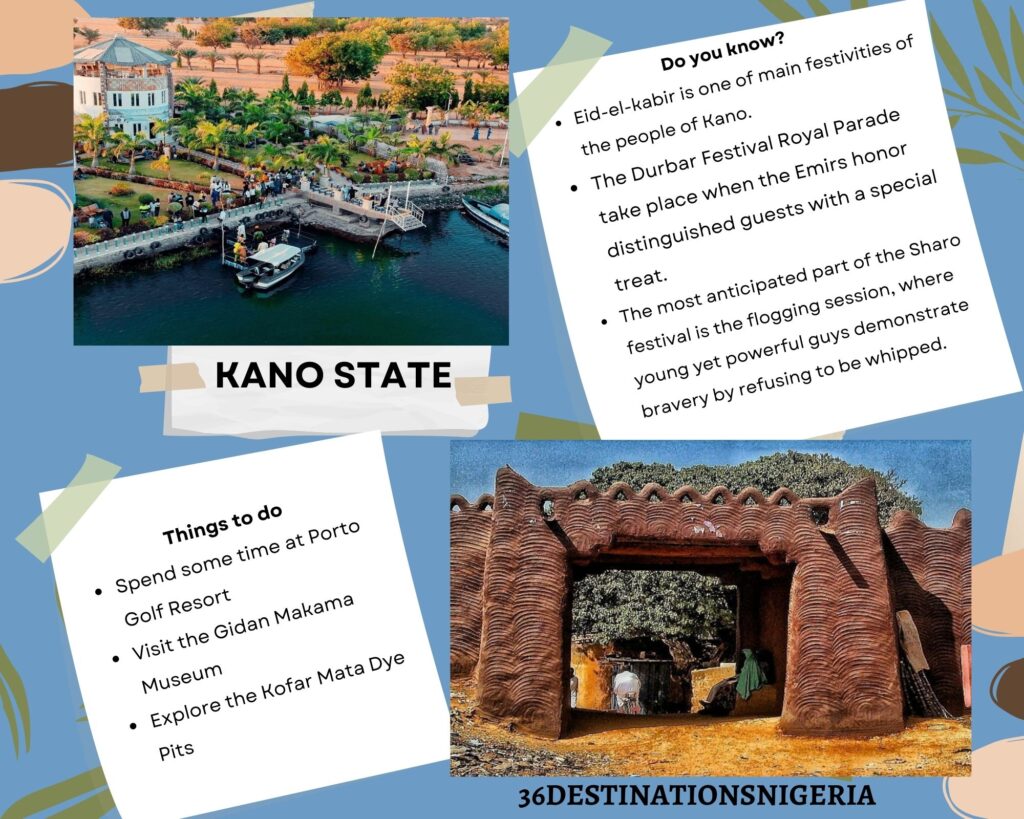Kano State is a Nigerian state, located in the northwestern region of the country with 44 local government areas, Kano state was one of the six states carved out of the former Northern Region State of Nigeria in 1967.
In 1991 Kano was divided into two states, Kano and Jigawa states. Its capital is Kano,
It is the second largest city in Nigeria after Lagos, with over four million citizens living within 449 km2 (173 sq mi); located in the Sahel, south of the Sahara, Kano is a major route of the trans-Saharan trade. The city has been a trade and human settlement for millennia. It is the traditional state of the Dabo dynasty who since the 19th century have ruled as emirs over the city-state.
Kano Emirate Council is the current traditional institution inside the city boundaries of Kano, and under the authority of the Government of Kano State. Kano state is a state named after the blacksmith (Called Kano-Makeri) from the Gaya tribe who settled in the area while sourcing for ironstone, and nicknamed as “Centre of Commerce, Tumbin Giwa”.
